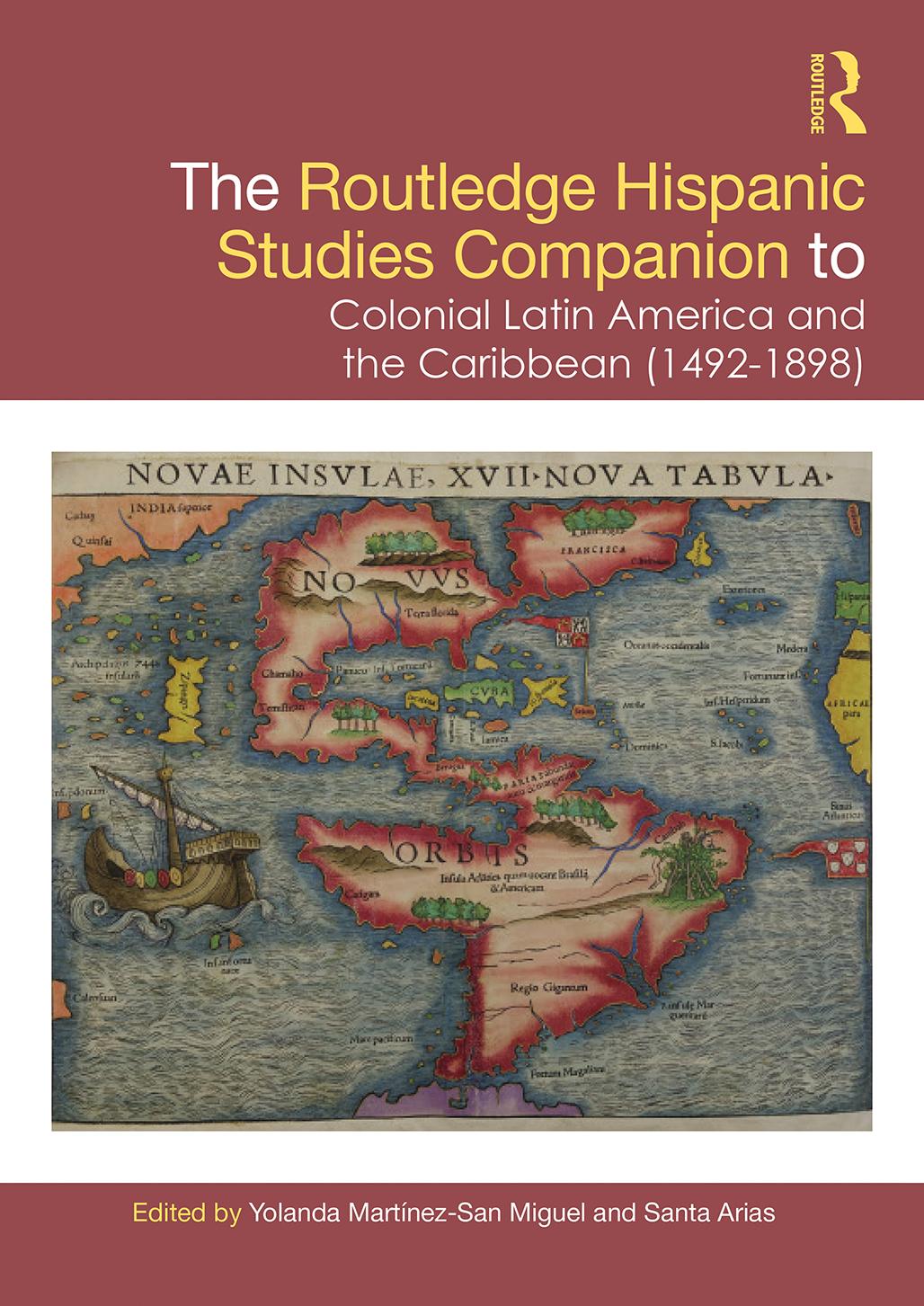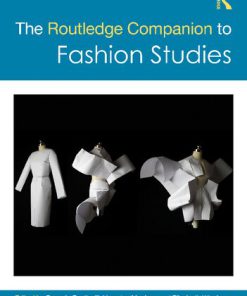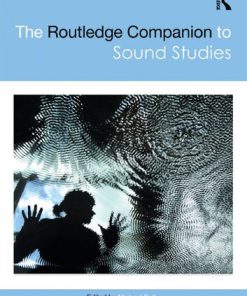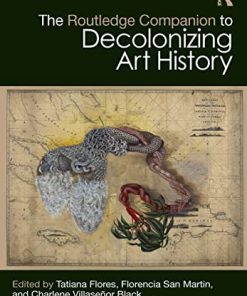The Routledge Hispanic Studies Companion to Colonial Latin America and the Caribbean 1492 1898 1st Edition by Yolanda Martínez San Miguel, Santa Arias ISBN 9781138092952 1138092959
$50.00 Original price was: $50.00.$25.00Current price is: $25.00.
The Routledge Hispanic Studies Companion to Colonial Latin America and the Caribbean 1492 1898 1st Edition by Yolanda Martínez San Miguel, Santa Arias – Ebook PDF Instant Download/Delivery: 9781138092952 ,1138092959
Full download The Routledge Hispanic Studies Companion to Colonial Latin America and the Caribbean 1492 1898 1st Edition after payment

Product details:
ISBN 10: 1138092959
ISBN 13: 9781138092952
Author: Yolanda Martínez San Miguel, Santa Arias
The Routledge Hispanic Studies Companion to Colonial Latin America and the Caribbean 1492 1898 1st Edition Table of contents:
Part I: Colonialism and coloniality
Chapter 1: Race and domination in colonial Latin American studies
Periodization
Domination
Mestizaje
From race to racialization
Conclusion
Notes
Works cited
Chapter 2: Self-representation and self-governance in early Latin America
Ethnohistory
Indigenous self-governance
Intermediaries
Indigenous intellectuals
Black intellectuals
Conclusion: toward a new politics of the Afro-indigenous colonial world
Works cited
Chapter 3: Mestizaje as a dispositif for a paradigm shift in colonial studies
The mestizaje strategy and its effects
Mapping mestizaje as an object of study
Concluding remarks and critical considerations on mestizaje as an object of study
Notes
Works cited
Chapter 4: Race, ethnicity and nationhood in the formation of criollismo in Spanish America
Defining the Criollo
The problem of the “nation”1
The case of Lima
Independence and the prevalence of criollo identity
Notes
Works cited
Chapter 5: An integrational approach to colonial semiosis
Introduction
Mesoamerican iconography
Andean Quipu
A media-studies approach to the orality-literacy binary
Rational and aesthetic modes of communication
Aesthesis and rationality in indigenous American sign systems
Conclusion
Works cited
Chapter 6: Latin American and Caribbean colonial studies and/in the decolonial turn
Aníbal Quijano
Sylvia Wynter
Notes
Works cited
Chapter 7: The ecocritical turn and the study of early colonial societies in the Caribbean: Of dogs, rivers, and the environmental humanities
Introduction
Ecoreading the colonial classics: of Raleigh, biodiversity and river landscapes
The mute dogs of the conquered
On ecotones and the death of rivers
Conclusion
Works cited
Chapter 8: Coloniality and cinema
The cinematic gaze
Coloniality
Indianizing film
The national critique of cinematic colonialism
Coloniality in films
De/colonizing the labor of film
Knowledge and subjectivity: the colonization of the imaginary
Knowledge and subjectivity: the indianization of the conquistadors
Notes
Works cited
Part II: Knowledge production and networks
Chapter 9: Old Testament, New World: Diluvialism and the Amerindian origins debate in the Enlightenment
Introduction
Theory of the earth
Critique of theories of Amerindian origins
Llano Zapata’s theory of Amerindian origins
Conclusion
Notes
Works cited
Chapter 10: The “cannibal cogito” and Brazilian antropofagia: Radical heterogeneity or “family resemblance”?
Counter-discourse or “misplaced idea”?
Antropofagia and the “cannibal cogito”
Anthropophagy and perspectivism
The “women’s portion”: gender and sexual cannibalism
Notes
Works cited
Chapter 11: Presumptions of empire: Relapses, reboots, and reversions in the transpacific networks of Iberian globalization
Terra Australis, 1609: in lieu of an Ocean
Manila-Macao-Mexico, 1565: in lieu of a network
Hagåtña/Agaña, 1695: in lieu of Christianity
Alta California, 1794: in lieu of a (vanishing) colonial subject
Notes
Works cited
Chapter 12: Imperial tensions, colonial contours: Jesuits, slavery, and race within and beyond the Portuguese Atlantic
Stray cases
Departures
The case for Vieira
Bodies, souls, empires
Toward an imperial history of slavery and race in Brazil
Note
Works cited
Chapter 13: The Caribbean conundrum: José Antonio Saco’s Hispanic archive and the Black Atlantic
José Antonio Saco and his times
Entering the archive
Recovering Bartolomé de las Casas
Theorizations in the Spanish Caribbean
The Hispanic archive and the Black Atlantic
Works cited
Part III: Materialities and archives
Chapter 14: Material encounters: Columbus’s Diario del primer viaje and the objects of colonial Latin American and Caribbean studies
Material culture, materiality, and colonial Latin American and Caribbean studies: an overview
The materiality of Columbus’s first Atlantic crossing
Rescates and the material culture of the first contact
Colonial object ontologies
Notes
Works cited
Chapter 15: It comes with the territory: Indigenous materialities and Western knowledge
Indigenous material cultures
Monumentality, architecture, and the organization and exploitation of the land
Objects
The materiality of the indigenous past (and present) in Uruguay
Notes
Works cited
Chapter 16: Creole knowledge in colonial Mexico: Religion, gender and power
Scholarship trends on Creole religion, knowledge and gender
Balbuena: knowledge production and religion in Grandeza mexicana
Andrés Pérez de Ribas and Juan Antonio de Oviedo: Creole Jesuit masculinity and spiritual exemplarity
Carlos de Sigüenza y Góngora: religious hierarchies of race and gender
Sor Juana Inés de la Cruz: gendering Creole knowledge
Conclusion
Notes
Works cited
Chapter 17: The colonial Latin American archive: Dispossession, ruins, reinvention
Archival dispossession
Archival ruins
Archival reinvention
Conclusion: archival reading, archival writing
Notes
Works cited
Chapter 18: Materialities and archives
Colonial materialities and the history of art
Styles and nomenclature in colonial art and architecture
The material turn and enconchados: a case study
Concluding thoughts: colonial archives
Notes
Works cited
Chapter 19: Port cities as sites of spatial knowledge in eighteenth-century Spanish America
The spatial nature of ports
Re-envisioning ports: containing chaos, disorder, and freedom
Managing the southernmost ports and the racialization of space
Final remarks
Notes
Works cited
Chapter 20: Spatiality and discourse in the region of La Plata
Mud and hunger
With their people as with their women
The Guaraní, encomienda and reduction
The Treaty of Madrid (1750) and the case of the Guaraní wars: toward a policy of mobility
Conclusions
Notes
Works cited
Part IV: Language, translation and beyond
Chapter 21: The white legend: El Dorado, pachacuti, and Walter Raleigh’s discovery of (Latin) America
The Black and the Gold Legend
The Black and the White Legend
Walter Raleigh and pachacuti
Notes
Works cited
Chapter 22: The agency of translation in colonial Latin America: Rethinking the roles of non-European linguistic intermediaries
Reflections on method
Archives
Notes
Works cited
Chapter 23: Intercultural (mis)translations: Colonial static and “authorship” in the Florentine Codex and the relaciones geográficas of New Spain
Pluricultural and plurilingual New Spain
Bilingual/bicultural intermediaries
(Mis)translations: double mistaken identity, colonial static, and untranslatability
The Florentine Codex (General History of the Things of New Spain) 1550s–1570s
The 1577 relaciones geográficas surveys
Conclusions
Notes
Works cited
Chapter 24: Defending the indefensible: Las Casas and the exceptions to sovereignty
Defense: spatial, temporal and ethical axes
Defense as the best offense
Local cosmovisions
Defending and defining origins
Defending the indefensible
Conclusions
Notes
Works cited
Chapter 25: The (dis)continuities of decolonized gender and sexual identity in the Andes
Queer tropes of gender and sexuality
Third-gender performativity, the Andean feminine and primordial androgyny
Contemporary decolonial aesthetics: Travestis and the Chuquichinchay in visual and performance art
Notes
Works cited
Index
People also search for The Routledge Hispanic Studies Companion to Colonial Latin America and the Caribbean 1492 1898 1st Edition:
the routledge hispanic studies companion to nineteenth century spain
the routledge companion to latino/a literature
the routledge handbook of spanish as a heritage language
the routledge hispanic studies companion to nineteenth-century spain
the routledge companion to the hispanic enlightenment
Tags: Yolanda Martínez San Miguel, Santa Arias, Routledge Hispanic, Colonial Latin America, Caribbean
You may also like…
Politics & Philosophy - Government & Politics
Arts - Fashion
Arts - Music
The Routledge Companion to Sound Studies 1st Edition by Michael Bull ISBN 9781315722191 1138854255
History - European History
Arts - Study & Teaching
The Routledge Companion to Design Studies 1st Edition Penny Sparke
Politics & Philosophy - Sociology
Arts - Contemporary Art
Uncategorized
Caribbean Globalizations 1492 to the Present Day 1st Edition Eva Sansavior Richard Scholar
History - Latin American History











